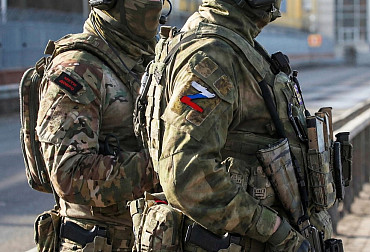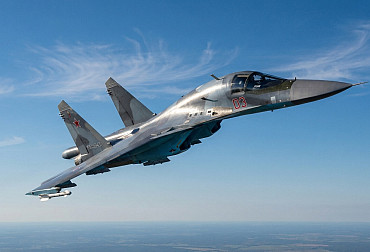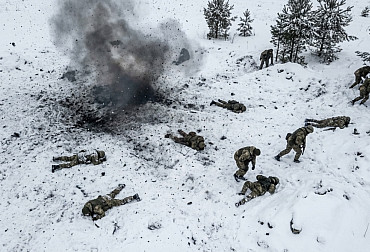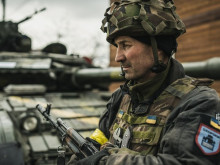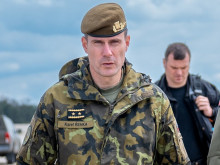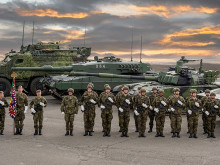Tomáš Pojar: The war in Ukraine is comparable in significance to the fall of the Berlin Wall
When you became Prime Minister Petr Fiala's adviser on security and foreign affairs at the end of last year, you probably had different ideas about the scope of your work than you do today, when the war in Ukraine is ongoing. What was running through your mind when you heard about the Russian invasion of Ukraine?
That this was an event comparable to the fall of the Berlin Wall, a turning point in European history that would be written about in textbooks. And that I have no choice but to accept the Prime Minister's offer and return to full-time civil service after eight years.
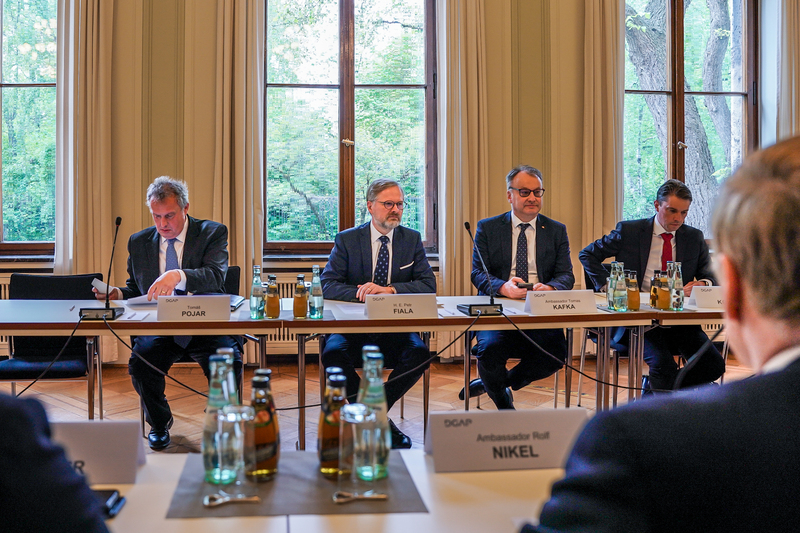
That this was an event comparable to the fall of the Berlin Wall, a turning point in European history that would be written about in textbooks. And that I have no choice but to accept the Prime Minister's offer and return to full-time civil service after eight years.
I am the Prime Minister's adviser on foreign and security policy and the Sherpa on key issues discussed at the European Council. These are connected vessels, which also make a logical link to Minister Beck. It sounds complicated, but it makes sense. I only have the adviser on my card.
And what is the situation with the creation of the office of the National Security Adviser, the so-called Security Czar?
I hope that the Office of the National Security Adviser will be established in the Cabinet Office on 1 January 2023, as it is in the Programme Statement. After that, it will be possible to appoint a specific person. There is nothing more to say about this now.
The scale of the Russian invasion of Ukraine has probably taken everyone but the US and British intelligence services by surprise. The reaction of the West, perhaps also surprisingly, came quite quickly and, albeit gradually, rather harshly. What were the defining moments in this regard that united most Western states not only to provide humanitarian but also military assistance to Ukraine?
Absolutely crucial was how the Ukrainians fought back for the first forty-eight hours after the invasion began. This will convinced others that we had to help them in their defence. Russia's brutality and lies were, in turn, the driving force behind the sanctions.
How is it possible that the determination of the Ukrainians to resist was underestimated by the aggressor itself, Russia?
Since the events of 2014, Putin has helped to consolidate the Ukrainian people and awaken their 'Ukrainianness' with his brutal pressure. Even though Russian propaganda has constantly claimed that Ukrainians do not exist as a nation. Through this prism, he has apparently convinced even himself that Ukrainians will not fight for their country even now. But quite possibly the Ukrainians surprised themselves as well. Bravery always shows itself only during direct conflict. In the first days, the Ukrainians showed the whole world that they are serious and ready to sacrifice themselves for their country.
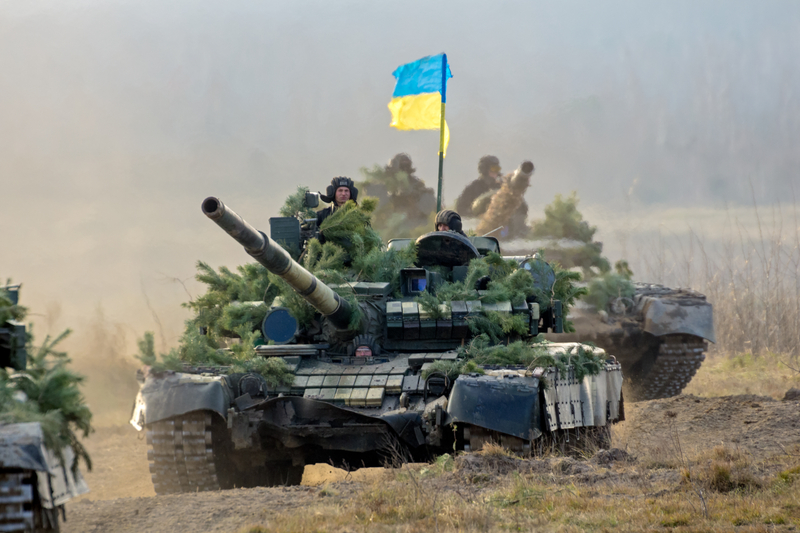 Picture: In the first days, Ukrainians showed the world that they are serious and ready to sacrifice for their country. (illustration photo) | Shutterstock
Picture: In the first days, Ukrainians showed the world that they are serious and ready to sacrifice for their country. (illustration photo) | Shutterstock
How do you see Germany's approach to the Ukrainian crisis? Is it the 'big European bear', which is recovering from disillusionment with Russia and will eventually become the main driving force? Or is it merely in the grip of events and under pressure from European opinion? Why have the Germans not heeded the warnings over the last decade or so that Russia cannot be trusted and strategic partnerships cannot be entered into?
Germany has always had a special relationship with Russia and, at least in recent decades, this relationship has been built on considerable illusions. I am sympathetic to the fact that it is difficult to accept that your policies, your beliefs, have long been built on a flawed foundation. However, German thinking is changing and, from 24 February this year, a new era is being written in Germany's approach to Russia, which will be different from the one after the fall of the Berlin Wall and perhaps even from the one established by Willy Brandt in the 1970s.
Brandt's legacy and the so-called Ostpolitik, i.e. cooperation with Russia, was not so long ago also espoused by the current German Chancellor, Olaf Scholz... After more than two months of horrors in Ukraine perpetrated by Russian troops, the question arises as to how the West should deal with Vladimir Putin. Is it even conceivable that once the war is over there will be any normalisation of relations? Or has Putin, and with him all of Russia, become a pariah with whom no one will deal?
Normalizing relations with Putin will indeed be difficult. But with a post-Putin Russia, perhaps it will be possible. Russia will not disappear, so we will have to continue to live with it somehow. However, I hope that our future relations will be based on reality and not on naive expectations. Naivety usually leads to dead ends and sometimes to disasters.
A perennial stumbling block for the Czech Ministry of Defence is the inability to complete arms contracts and to successfully implement tenders (for example, the tender for armoured vehicles). Where is the proverbial dog buried?
It must be said that much has changed for the better in recent years, especially as regards small and medium-sized contracts, where the system works. However, the situation is different for large contracts. If we try to buy complex and expensive strategic systems in the same way as we buy rolls, it takes a long time, it gets more expensive, the bids become outdated, the process is both easily challenged and endless. Of course you have to choose well and compare offers, but you also have to think strategically and at some point you just have to decide and go down the direct purchase route or use the Government-to-Government mechanism. All developed countries do it.
What has changed with the conflict in Ukraine in this respect?
It is perhaps much clearer that we need a modern army. And also that we need to think long-term and not wait for anything anymore. The moment someone attacks you, it is too late. It takes many years to buy and learn to use sophisticated weapons. From the moment you make the decision, you will get new planes, tanks or anti-aircraft systems in the quantities you want in four years at the earliest, but often as long as ten years.
Can we understand, then, the recent trip of our ministers to the US?
We are already buying helicopters directly from the US Government, so we can buy something else. At the same time, however, the United States will not become our exclusive supplier by any means. First of all, it depends on the requirements of our military. The most suitable supplier is then sought.
With more time having passed since the pioneering visit of the three prime ministers to Kiev in mid-March, which you also took part in, information is coming to light that this trip was not just a demonstration of support for the Ukrainians or political PR, as some have criticised it, but that during this trip military cooperation was established, which the Czech Republic and Poland are providing to Ukraine on a massive scale.
Clearly, there was talk of concrete cooperation on the supply of humanitarian and military aid, as well as cooperation in the field of diplomacy. Most importantly, direct contact was also established, and mobile telephone numbers were exchanged. This makes everything else much easier and more flexible. Many things can be agreed by telephone or videoconference, but there is nothing like direct contact.
Military aid from the former Eastern Bloc states to Ukraine will help speed up the upgrading of their armies to Western technology. Similarly, NATO looks set to be strengthened by the addition of two Nordic states. Are these, albeit paradoxically, positive effects of the Russian invasion of Ukraine?
Undoubtedly. Our dependence on Soviet technology may finally become a thing of the past more than thirty years after the Velvet Revolution. And perhaps we will start spending enough money on our own defence, because it is clear that we simply need an army.
We already know the general priorities of the Czech Presidency of the EU Council (managing the refugee crisis and post-war reconstruction in Ukraine, energy security, strengthening European defence capabilities, the strategic resilience of the European economy and the resilience of democratic institutions). But what should be the main priorities according to Tomáš Pojar?
Stop Vladimir Putin and overcome the economic and energy crisis.
Finally, a little prognostically, what would Tomáš Pojar consider to be the success of his mission with Prime Minister Petr Fiala?
That the Czech Republic will be taken seriously in the world again and that the left hand of the Czech state will know what the right hand is doing, or that a position of national security advisor will be created under the Prime Minister, backed by a small, functional and flexible apparatus.
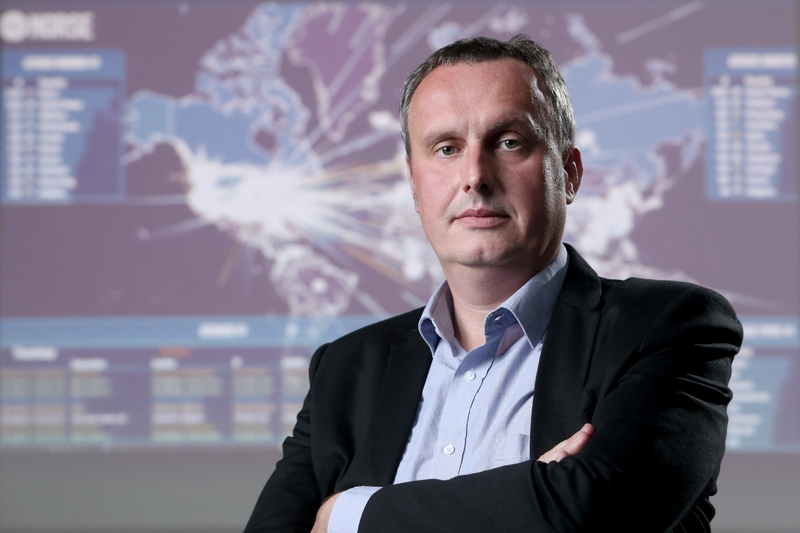
Tomáš Pojar
Tomáš Pojar is an advisor to Prime Minister Petr Fiala on security and foreign affairs issues and the vice-rector of the CEVRO Institute (temporarily relieved of his post). He previously served as Czech Ambassador to Israel, First Deputy Minister of Foreign Affairs and Executive Director of People in Need. He studied Political Science at Charles University and Counter - Terrorism and Homeland Security Studies at the Interdisciplinary Center /IDC/ in Israel.











